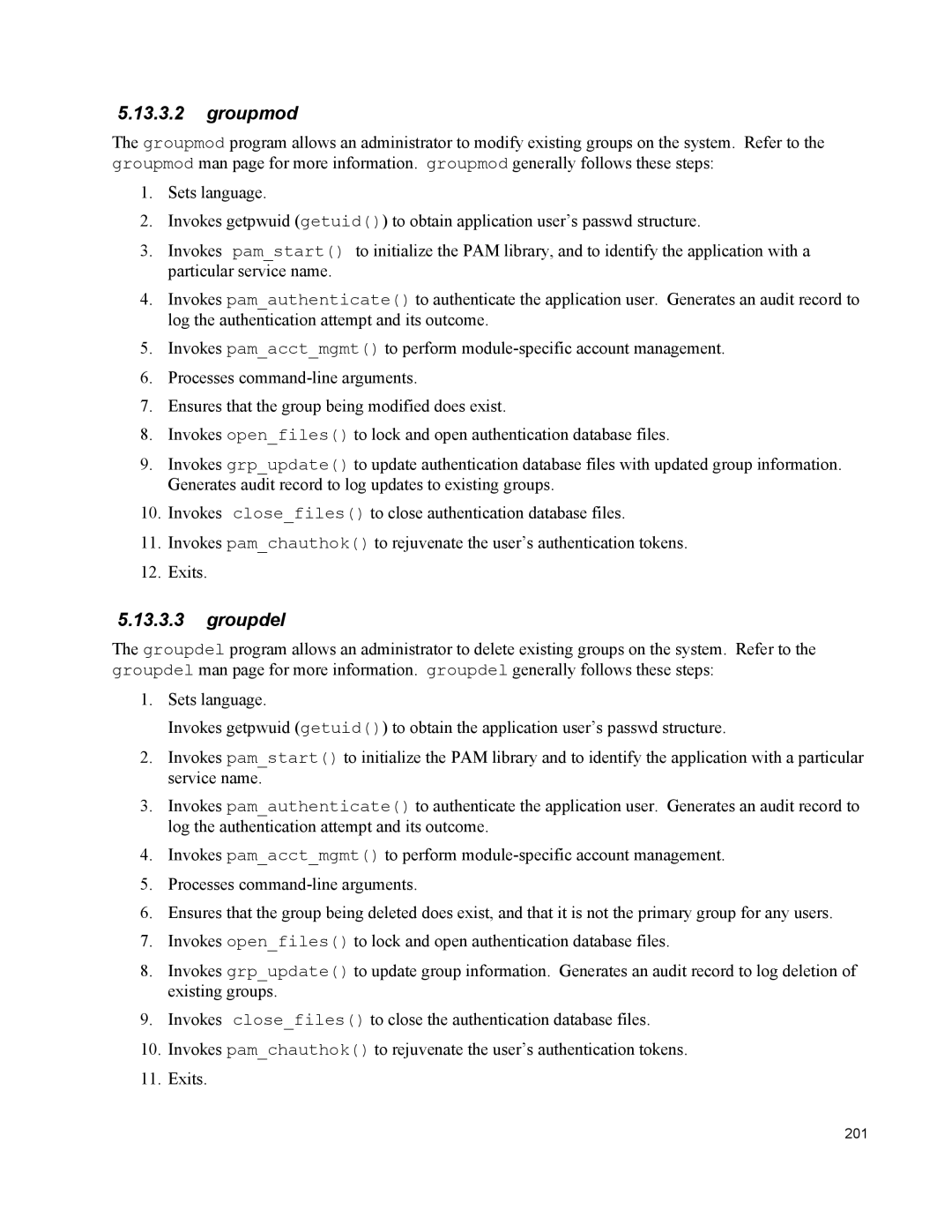5.13.3.2groupmod
The groupmod program allows an administrator to modify existing groups on the system. Refer to the groupmod man page for more information. groupmod generally follows these steps:
1.Sets language.
2.Invokes getpwuid (getuid()) to obtain application user’s passwd structure.
3.Invokes pam_start() to initialize the PAM library, and to identify the application with a particular service name.
4.Invokes pam_authenticate() to authenticate the application user. Generates an audit record to log the authentication attempt and its outcome.
5.Invokes pam_acct_mgmt() to perform
6.Processes
7.Ensures that the group being modified does exist.
8.Invokes open_files() to lock and open authentication database files.
9.Invokes grp_update() to update authentication database files with updated group information. Generates audit record to log updates to existing groups.
10.Invokes close_files() to close authentication database files.
11.Invokes pam_chauthok() to rejuvenate the user’s authentication tokens.
12.Exits.
5.13.3.3groupdel
The groupdel program allows an administrator to delete existing groups on the system. Refer to the groupdel man page for more information. groupdel generally follows these steps:
1.Sets language.
Invokes getpwuid (getuid()) to obtain the application user’s passwd structure.
2.Invokes pam_start() to initialize the PAM library and to identify the application with a particular service name.
3.Invokes pam_authenticate() to authenticate the application user. Generates an audit record to log the authentication attempt and its outcome.
4.Invokes pam_acct_mgmt() to perform
5.Processes
6.Ensures that the group being deleted does exist, and that it is not the primary group for any users.
7.Invokes open_files() to lock and open authentication database files.
8.Invokes grp_update() to update group information. Generates an audit record to log deletion of existing groups.
9.Invokes close_files() to close the authentication database files.
10.Invokes pam_chauthok() to rejuvenate the user’s authentication tokens.
11.Exits.
201
